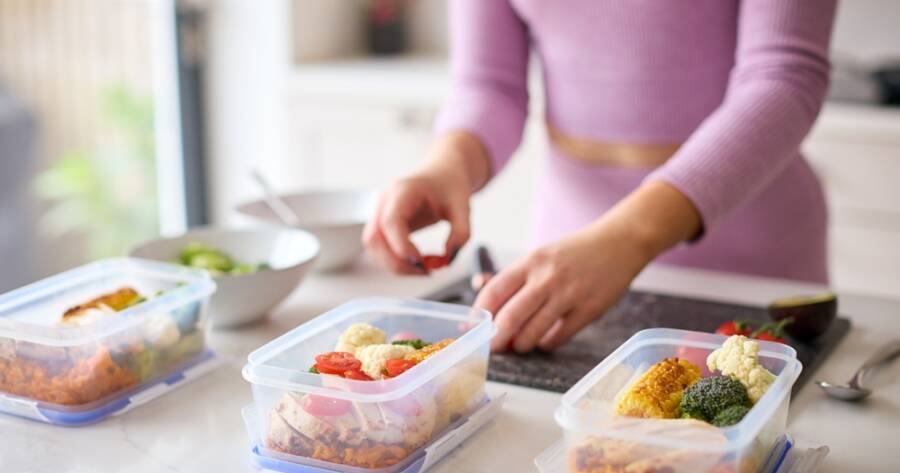Meal planning can simplify healthy eating and save time, especially for beginners. Start by creating a weekly menu based on your dietary goals and favorite recipes. Focus on balanced meals that include proteins, whole grains, and fresh produce. Shopping with a list helps avoid unnecessary purchases and reduces food waste. Preparing ingredients in advance can make cooking easier and more efficient, ensuring you stay on track with your meal plans.
Start Simple: Choose Easy Recipes to Get Started
When beginning with meal planning, start with simple, easy-to-make recipes that require minimal ingredients and preparation time. Focus on dishes that you are already familiar with or ones that have straightforward instructions. This approach will help you build confidence and establish a routine without feeling overwhelmed.
Also, choose recipes that use similar ingredients. This will allow you to buy in bulk and reduce food waste. Consider meals like stir-fries, pasta dishes, or sheet pan dinners, which are easy to prepare and customize. As you become more comfortable with meal planning, you can gradually introduce more complex recipes. Starting simple allows you to ease into the process, ensuring that meal planning becomes an enjoyable and sustainable habit.
Make a Grocery List: Plan Your Shopping Efficiently
Creating a detailed grocery list is essential for efficient meal planning and helps prevent impulse buying and food waste. Start by reviewing your chosen recipes for the week and noting all the ingredients you’ll need.
Additionally, organize your list by categories, such as produce, dairy, meats, and pantry staples, to make your shopping trip quicker and more organized. This strategy also ensures you don’t forget any key items, reducing the need for last-minute store runs. Consider checking your pantry and fridge before shopping to avoid buying duplicates. A well-planned grocery list not only saves time and money but also helps you stick to your meal plan more effectively!
Meal Prepping and Freezing: Save Time and Reduce Waste
Meal prepping is a great way to save time during the week and reduce food waste. By preparing large quantities of food at once, you can portion out meals for the days ahead or freeze them for later use. This method is especially useful for busy weekdays when you may not have time to cook from scratch.
Dishes like soups, stews, casseroles, and grain bowls are perfect for batch cooking and freezing. Invest in quality storage containers to keep your meals fresh and organized. Label and date your frozen meals to easily keep track of what you have. Batch cooking not only simplifies mealtime but also helps you avoid the temptation of takeout, supporting healthier eating habits.
Incorporate Variety: Keep Your Meals Interesting
To avoid meal planning fatigue and keep your meals exciting, it’s important to incorporate variety into your weekly menu. Mix up your recipes by trying different cuisines, cooking methods, or seasonal ingredients. Experiment with new spices and herbs to add flavor without extra calories.
You can also consider themed nights, such as Meatless Mondays or Taco Tuesdays, to add fun and structure to your meal planning. Incorporating a mix of proteins, vegetables, and grains will ensure a balanced diet and prevent your meals from becoming monotonous.
Stay Flexible: Adjust Your Plan as Needed
While meal planning helps provide structure, it’s important to stay flexible and adjust your plan as needed. Unexpected events, cravings, or leftovers can require you to change your plans. Don’t be afraid to swap out a meal or repurpose leftovers into a new dish. Flexibility in meal planning helps reduce stress and keeps it sustainable long-term.
Consider keeping a few easy, non-perishable meal options on hand, such as pasta or canned soup, for days when you need a quick backup. By remaining adaptable, you can maintain a positive attitude toward meal planning and make it a successful part of your routine without feeling constrained.
Learn More About Meal Planning
Meal planning is a valuable skill that can save time, reduce stress, and improve your overall diet. By starting with simple recipes, creating efficient grocery lists, and staying flexible, you can make meal planning a seamless part of your routine.
Keep exploring new tips and strategies to refine your approach and find what works best for you. The more you learn and practice, the easier it becomes to enjoy delicious, homemade meals every day!

